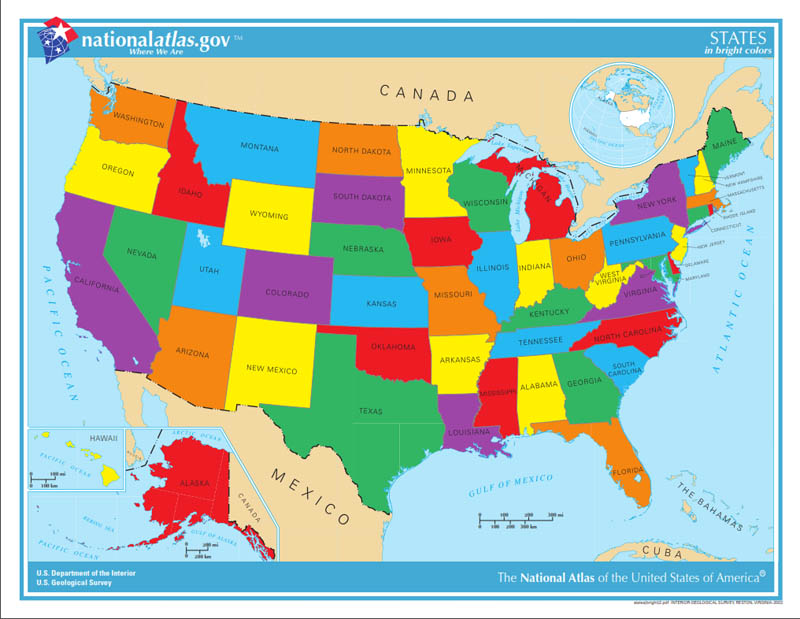Painful Tradeoffs
How do we manage the local environmental impacts of the energy transition?
Just before leaving office, the Trump Administration approved a huge lithium mine in Thacker Pass, Nevada. The mine could help supply the U.S. battery industry for decades. It might also impact habitat of the endangered grouse sage, deplete groundwater levels, and threaten the survival of an endangered trout. Local residents have sued to block the mine. Knowing the Trump Administration, it’s quite possible that its approval of the mine is legally questionable. This ...
CONTINUE READINGThe 2022 Elections and State Environmental Policies
Governors are pivotal players in state regulatory policies
The formal powers of state governors vary from state to state. Like Presidents, however, they have been busy the past few decades centralizing control of their bureaucracies. That makes them key players in the environment and energy domain. This year, some key governors’ mansions are up for grabs. Here’s a summary of the current state of play in the key states, according to two leading forecasters: State Incumbent Cook’s Political Larry...
CONTINUE READINGBreaking Up with Fossil Fuels
It's not us. It's you.
WORLD: Thanks for the card. . . . But I think we need to talk. FOSSIL FUEL INDUSTRY: About what? W: About us. FFI: About us?? Can’t it wait until some other time? This is Valentine’s Day, and I’ve made plans for us. Big plans. W: The pandemic has given me a lot of time to think. I think we need to get some things out in the open. FFI: What “things”? W: It’s our relationship. I think it’s become toxic. I don’t know, maybe it’s alw...
CONTINUE READINGFrank G. Wells Clinic Faculty File Amicus Brief on Behalf of Law Professors in California Restaurant Association v. City of Berkeley
Supporting Berkeley's ability to decide where utility infrastructure may be built
This week, as part of the Frank G. Wells Clinic in Environmental Law, Cara Horowitz, Julia Stein, and I filed an amicus curiae brief on behalf of seven law professors in the Ninth Circuit case California Restaurant Association v. City of Berkeley, in which the California Restaurant Association (CRA), an industry association, is challenging a Berkeley ordinance barring natural-gas piping in most new buildings. Our clients are leading experts in energy and environmental...
CONTINUE READINGThe Battle for the Senate
The 2022 elections will have repercussions in 2024 and beyond.
How much does control of the Senate matter for purposes of environmental law? If Congress remains in Democratic hands, the Democrats can make another run at a reconciliation bill. Even if the House flips, control of the Senate still matters a lot, though the reasons are more complicated. The State of Play. Here’s where things sit right now in the most contested races. To win control of the Senate, Republicans need to hold their current seats and pick up at leas...
CONTINUE READINGJim Crow and the Fossil Fuel Industry
The fossil fuel industry has yet to escape its discriminatory past.
This being Black History Month, I thought it would be worthwhile looking at the fossil fuel industry’s racial history. Given the historic concentration of the oil and coal industries in the South, it is no surprise to find that these industries have also been deeply entangled with Jim Crow and its legacy of discrimination. Oil and gas. The oil industry has a long, deplorable history on race issues. The oil industry began in rural Pennsylvania but soon centered in ...
CONTINUE READINGL.A. City’s Oil and Gas Ban: A Major Win for Environmental Justice Communities
A vote last week by the Los Angeles City Council will initiate a process to ban new oil and gas wells and phase out existing wells within the City’s limits. This historic vote is a major victory for environmental justice communities that have been disproportionately impacted by the harmful impacts of neighborhood oil drilling for far too long. The win follows from more than a decade of advocacy by STAND-L.A., a local environmental justice coalition, to stop neighborh...
CONTINUE READINGClimate Change and Black History
Some important people in the climate arena are Black. But there are far too few of them.
Since this is Black History Month, I thought it would be appropriate to talk about some of the prominent contributions by Blacks to understanding and addressing climate change. Blacks are badly underrepresented in STEM fields such as atmospheric science and in environmental groups, but there are some important exceptions.(STEM stands for ‘Science, Technology, Engineering, and Math.’) I wanted to talk about some of those figures. Dr. Warren Washington is a long-tim...
CONTINUE READINGWhich Front Runner Would Be Better for the Environment?
The three front runners have track records, but they’re not easy to interpret.
Currently, the press seems to view Judges Michelle Childs, Ketanji Brown Jackson, and Leondra Kruger as the front runners to replace Breyer. That may shift over the next month, but it seems worthwhile to give these three a closer look. They’ve all decided environmental cases while on the bench. I assume most readers don’t want to see them, but I’ve listed citations for the cases at the end. Here’s what we know at this point about these judges. Michelle Childs....
CONTINUE READINGWetlands, the Clean Water Act & the Supreme Court: the Sacketts Return to Washington
Justices Grant Review (Again) in the Sacketts' Longstanding Wetlands Battle With the Government
This week the U.S. Supreme Court agreed to hear the case of Sackett v. USEPA, No. 21-454, an important appeal involving the scope of federal authority to regulate wetlands under the Clean Water Act. If the Sackett litigation sounds familiar, it should: the case has been pending for well over a decade, and this is the Sacketts' second trip to the Supreme Court in that very same lawsuit. Earlier this month, Legal Planet colleague Dan Farber wrote a ty...
CONTINUE READING











